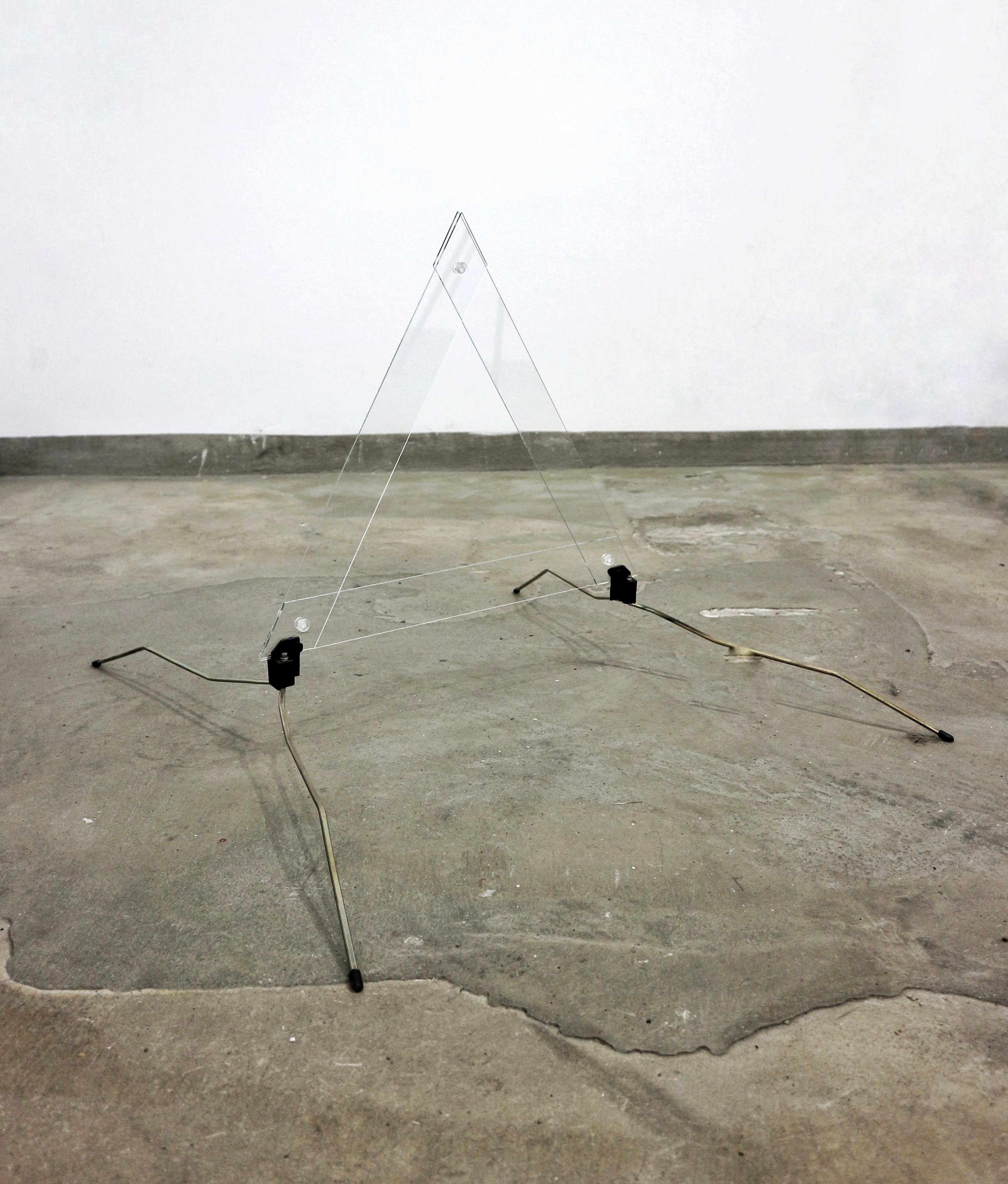DAÍ ESTA ESCADARIA INFINITA_Hence this endless staircase
PT “Quem és? – perguntou Zaratustra com veemência – Que fazes aqui? E por que dizes que és a minha Sombra? Não és nada agradável.” “Perdoa-me ser o que sou – respondeu a outra – mas sou com efeito a tua Sombra e se te desagrado, pois bem, ó Zaratustra, eu aprovo-te e felicito-te pelo teu bom gosto.” em Assim falava Zaratustra, Friedrich Nietzsche (1883-1891) Lemos na última edição da Spike Arte Magazine (nº 66), nas palavras de Nicolette Polek, que a religião jamais poderia ser substituída pela arte. A primeira ensinaria a ser, enquanto que a segunda proporcionaria experiências de ser. Julgamos ter lido que apenas a religião permite a ação e a graça, ato-contínuo do caminho para a vida eterna. Cremos, por irónica que pareça esta expressão, que foi dito que a arte é uma mera sombra da religião, melhor: substituir a arte pela religião seria substituir a forma pela sua sombra, uma sombra evidentemente permeável à luz. Não podemos permitir que a arte seja esta sombra do incerto. Se a arte for a sombra do divino, é-lhe autónoma, vale per se. Uma sombra sem necessidade corpórea e capaz de devolver a luz. E se à arte atribuirmos essa distinta forma de luz, a essa sombra, elogiamos. Não é ela equivalente da verdade, mas é aquela que reverte a força da luz que tudo arrasta e submete. Que tudo iguala. O desígnio pela eternidade não encontrará respostas no facto, na forma e no conhecimento, antes na ausência positiva de cânones, rastilho capaz de elucidar o subtil e o simbólico, a verdadeira iluminação formadora de beleza e individualidade, como nos diz Jinichiro Tanizaki. Encontrámos nas palavras de Cruzeiro Seixas a melhor forma de nomear este caminho (im)possível, indefinido, a tal “escadaria infinita”. EN "Who are you?" asked Zarathustra vehemently, "What do you here? And why call you yourself my shadow? You are not pleasing to me.” "Forgive me," answered the shadow, "that it is I; and if I please you not well, O Zarathustra! therein do I admire you and your good taste.” in Thus Spoke Zarathustra, Friedrich Nietzsche (1883-1891 We read in the last issue of Spike Arte Magazine(#66), in the words of Nicolette Polek, that religion could never be replaced by art. The first would teach us to be, while the second would provide us experiences of being. We believe we have read that only religion allows action and grace, the ongoing act on the path to eternal life. We conceive, as ironic as this expression may seem, that it was said that art is a mere shadow of religion, better than that: replacing religion with art, would be to replace a form by its shadow, a shadow undoubtedly permeable to light. We cannot allow art to be this shadow of the uncertain. If art would be the shadow of the divine, it would be autonomous, worth per se. A shadow without any corporeal need and capable of giving us the light back. And if we attribute to art this distinctive form of light, to this shadow, we praise. It is not the equivalent of the truth, but it is the one that reverses the force of the light that drags and submits everything. That turns everything equal. The quest for eternity will not find answers in the fact, in the form and in the knowledge, rather in the positive absence of canons, the fuse capable of clarifying the subtle and the symbolic, the true illumination that leads to beauty and individuality, as Jinichiro Tanizaki tells us. We found in Cruzeiro Seixas' words the best way to name this (im) possible, indefinite path, the “infinite staircase”. Daniel Madeira, Mafalda Ruão e Sónia Honório Alunos do 2º ano do Curso de Mestrado em Estudos Curatoriais do Colégio das Artes, Universidade de Coimbra Parceria UmbigoLAB e Colégio das Artes_UC










Comments